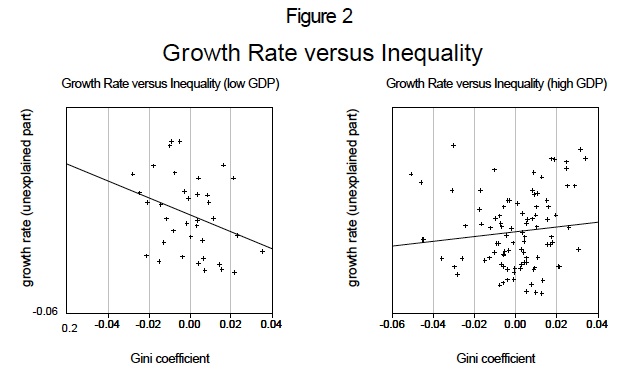Regular readers will find me beating something of a dead horse here, but I felt it necessary to respond to a recent post by Bryan Caplan, who continues to speculate on the putative negative economic effects of “socialism.”
>”Lots of developed countries have some significant socialistic elements,” … would be an understatement. Every developed country has some significant socialistic elements.
Brian, yours is also an understatement. Every thriving, prosperous country in the world has major, massive elements of socialism. Even in your favorite poster child, Singapore, 80-90% of residents live in public housing.
I’ve asked you before: if the principles of libertarianism and small government were as economically efficient as you believe, wouldn’t at least one prosperous country have emerged that is governed by those principles, and wouldn’t those countries that have done so have left all the others in the dust?
In fact, over those decades you describe, in developed, prosperous countries (here repeating from a previous post),
Countries with more generous social programs and redistribution regimes grow at least as fast as others.
Countries with more progressive tax systems grow faster than others.
Countries with more wealth equality grow much faster than others.
More-equal countries provide more opportunity for people to climb the economic ladder.
(It’s worth noting here, by the way, that Lane Kenworthy and many others have demonstrated conclusively that equality in prosperous countries is achieved through various methods of redistribution–from education to infrastructure to social support–not through market mechanisms.)
>don’t you think it’s at least possible that, say, the EU would have had 1% higher growth over the last thirty years if it had more free-market policies?
Since the two regions’ growth rates over those years have been the same, you’re effectively asking, “would the EU have kicked our ass?” Certainly an interesting question.
>(I’m not saying that the trade-off is really this stark; it’s just a hypothetical).
This parenthetical disavowal, it seems me, deserves just as much attention as “Marx’s left-handed compliments to capitalism.”
Update 10/24: I notice that they’re hashing this out over at Cato. Will Wilkinson starts it out here, my hero Lane Kenworthy provides his cents’ worth here and here, with other contributions of interest here and here.
I also went back to the most widely-cited paper on this topic (from the world’s most widely-cited economist), Robert Barro‘s 2000 “Inequality and Growth in a Panel of Countries” (PDF). He concludes that over all the countries surveyed, there’s no correlation. He finds a negative correlation for poor countries (more unequal, slower growth) and a smaller positive correlation for richer countries (more unequal, higher growth).

Comments
3 responses to “Socialism and Prosperity: Does One Cause the Other?”
[…] Steve Roth: Socialism and Prosperity: Does One Cause the Other? […]
Sorry to be so late in commenting. I just found your blog, and have spent a day skimming it.
On the growth rate vs inequality for high GDP above, I think the trend line given is very questionable, but then, I’m not a statistician. If you delete the 6 upper right outliers, then the upper and lower bounds, and the central trend are nearly parallel and very nearly parallel with the low GDP set, and slope sharply down from left to right.
@Murray Duffin “On the growth rate vs inequality for high GDP above, I think the trend line given is very questionable”
Agreed. That kind of small “effect”/gentle slope does not (to speak in Bayesian terms) strongly sway my future priors. I’d want to see the same comparison using other methods of measuring inequality, for instance (GINI coefficient doesn’t tell us much about distribution across the middle of the income range, how widespread prosperity is), and other methods of measuring prosperity growth.